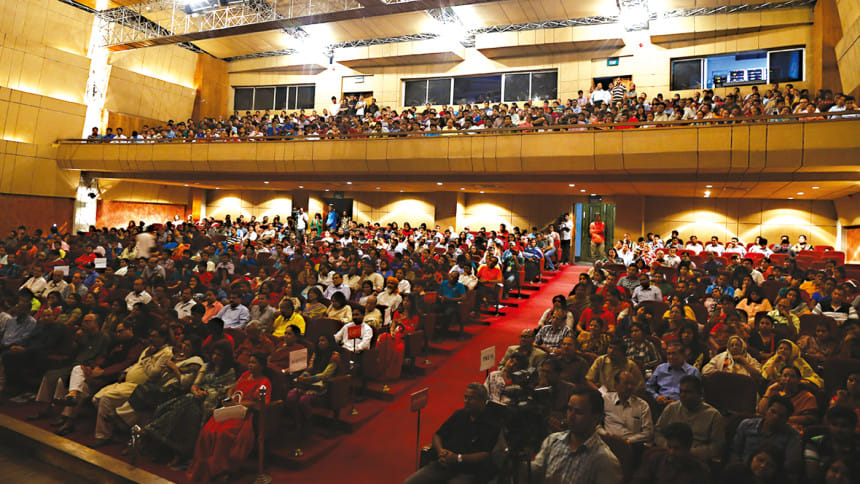The deserted performing spaces

While artistes are exploring different digital platforms as makeshift performing spaces, the once crowded physical venues and auditoriums now remain deserted, amid the coronavirus crisis. As cultural events and gatherings were suspended across the country, rehearsals and scheduled programmes at several venues came to an abrupt halt.
All five auditoriums of Bangladesh Shilpakala Academy (BSA) have been shut since March 26. Fazle Rabbi Shukorno, Stage Manager of National Art Gallery Auditorium, BSA, elaborated on the circumstances. "From time to time, some of us come to the venue to check up on things. We have strict orders of keeping everything closed until further notice," he explains. According to him, no rigorous form of maintenance is required at the moment. Their auditoriums and halls are expected to restart operations, once things get back on track. However, with no clear instructions from the authorities about reopening, waiting is the only option for the BSA team.
Bangladesh Mahila Samity (BMS), another hub of cultural and theatrical activities, is facing similar consequences. "Some of our staff members come here on alternate days for maintenance purposes," explains Gazi Ibrahim Firoz, Management Officer of BMS. "We usually turn on the air conditioner of the auditorium to keep it well ventilated and clean the premises, if necessary." According to him, even keeping up such nominal procedures is challenging with limited resources and at this point, their team is just praying for better days to arrive. Other venues such as Bangladesh National Museum, National Public Library and Natmandal at Dhaka University also remain empty, with no substitute plans.
Widespread cancellations of events and performances have led to challenges for artistes and patrons alike. Through online talk sessions and personal posts on social media, several noted artistes have expressed their concerns about these performing spaces. Recently, theatre director and activist Bakar Bakul raised queries on social media, suggesting that these empty venues can be turned into makeshift isolation spaces or quarantine units with health and food facilities for the increasing number of COVID-19 patients in the country. As a return to normalcy for these venues remain uncertain at the moment, repurposing them in this way could prove to be helpful, in response to the global emergency.

 For all latest news, follow The Daily Star's Google News channel.
For all latest news, follow The Daily Star's Google News channel. 



Comments